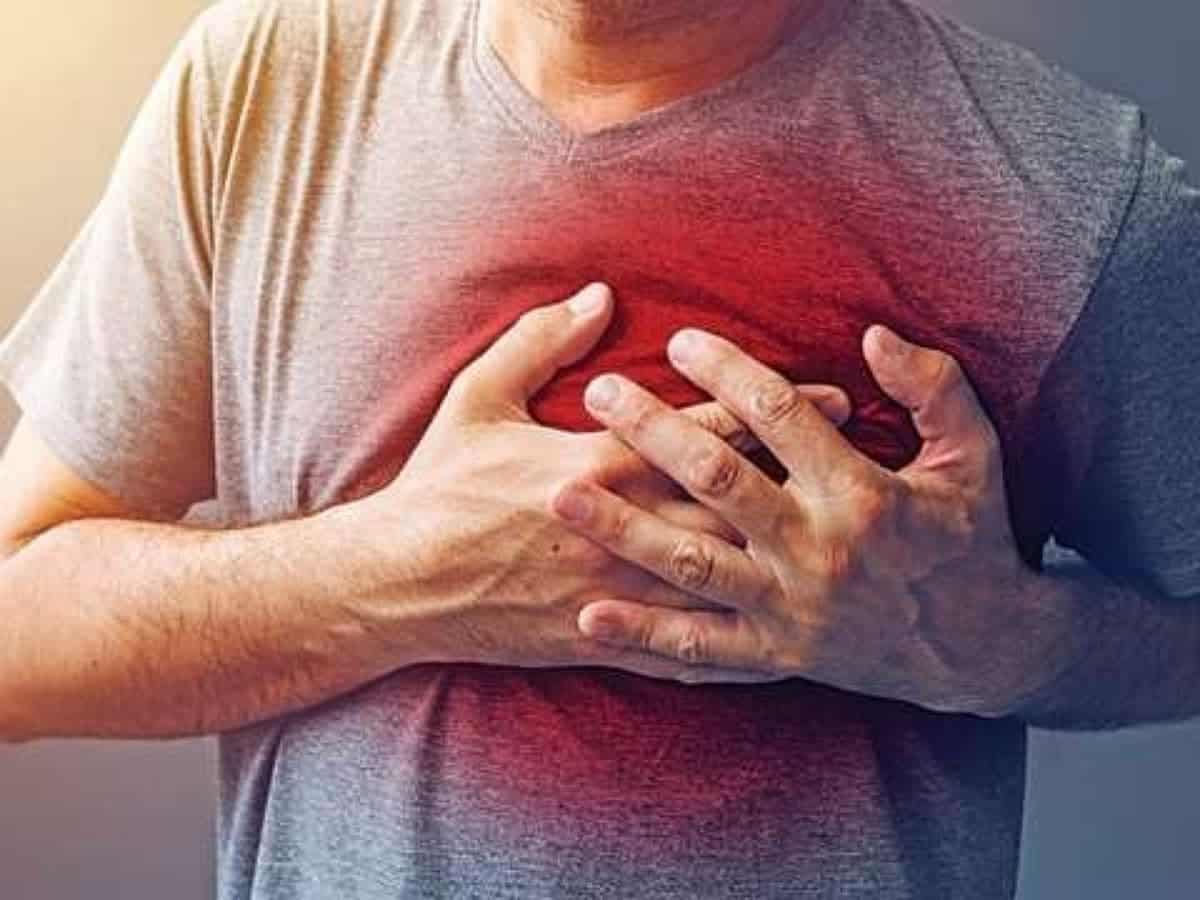
Hyderabad: Telangana Indian Medical Association estimated that youngsters who suffered COVID-19 infection last year are prone to a five times higher risk of death by cardiac arrest.
With an alarming increase in the number of sudden death cases being reported in Telangana, the situation begs further analysis and close scrutiny of these unfortunate events.
According to one estimate by the IMA, the mechanism by which COVID-19 causes death due to cardiac arrest is multifactorial.
Altered lifestyle, increased stress and reduced preventive checks also contributed to these excess cardiac deaths that are unlikely to be related to the COVID-19 vaccines given the present evidence and
the temporal sequence of events.
However, further research on the matter may help alleviate the fears of the public, said their press note.
Two kinds of sudden cardiac deaths
- Deaths following an acute heart attack are predominant ones that are witnessed in slightly elder subgroups and in those with traditional coronary risk factors and they follow an acute heart attack.
- Sudden deaths due to causes other than heart attack are rare instances in previously healthy individuals without any coronary risk factors.
Hypertrophic cardiomyopathy, arrhythmogenic right ventricular cardiomyopathy, Brugada syndrome, long QT syndrome, Catecholaminergic polymorphic ventricular tachycardia, and congenital coronary anomalies are some of the causes behind such events.
While the first group is amenable to detection by traditional preventive cardiac tests like ECG, ECHO and TMT, and can be avoided to a considerable extent by cardio-protective behaviour, the second group needs different detection algorithms like long-term ECG monitoring, electrophysiological testing, and genetic testing in individuals with higher risk.
IMA advises individuals to follow the guidance
Individuals above 30 years are encouraged to get their blood pressure, blood sugar and fasting lipid profile checked.
Those above 40 years may get an annual cardiac check-up done which should include an electrocardiogram, echocardiogram and an exercise tolerance (treadmill) test.
This may be done from an earlier age if there are coronary risk factors like hypertension, diabetes, smoking, family history of heart disease, hypercholesterolemia, obesity, lack of proper sleep and increased psychological stress.
Following preventive cardiac behaviour which entails eating healthy, exercising regularly, maintaining ideal body weight, avoiding smoking and moderating alcohol consumption, reducing stress, sleeping for a minimum of six to eight hours and detecting and controlling hypertension, diabetes and high cholesterol are advised to avoid heart attacks.
Citizens are encouraged to learn bystander CPR (Cardiopulmonary resuscitation) and AED usage and encourage others to learn CPR as well.
Avoid strenuous activity in an inebriated state, and slowly get back (and not rush) to previous exercise levels following viral infections.
People are advised not to panic looking at the hyped-up deaths being documented in the media reports. It is important to realize that these are not homogenous events and there are many different and sometimes unknown causes for these unfortunate deaths.
People are advised not to follow crash diets which may lead to sudden changes in metabolism.
IMA urges the government to take preventive measures:
To hasten the CPR training sessions as stated by the health minister with a goal to empower at least 50 percent of the adult population with this skill by the end of 2024.
To install the public access defibrillators as promised by the IT minister KTR to enhance their numbers and reach, the instructions from these defibrillators should be in local languages.
To include CPR as the curriculum in higher secondary school education so that children are equipped with this essential life skill.
To gather data and collect statistics about sudden cardiac arrests and keep the same in the public domain for constructive discussion and understanding.
To allocate funds for research into the reasons regarding these deaths, especially in the young and to coordinate and publish clinical studies with a view to reducing sudden deaths.
To advise the public to allow a post-mortem examination of the suddenly departed.
To reduce the panic among the public by sharing genuine information regarding heart diseases and heart health and to quell false information.
To constitute “Sudden Death Investigation Committees” with the help of IMA doctors to probe into each sudden death to reduce panic due to the perceived causes of sudden deaths.
